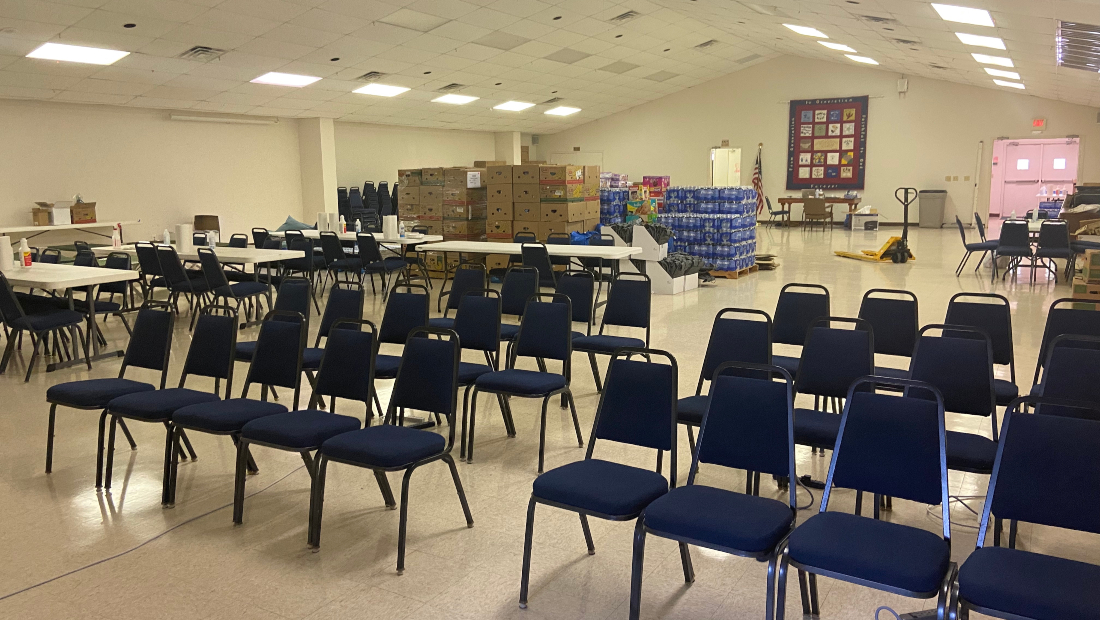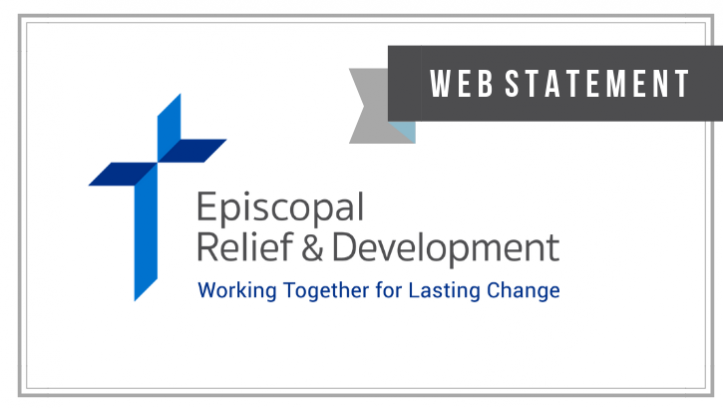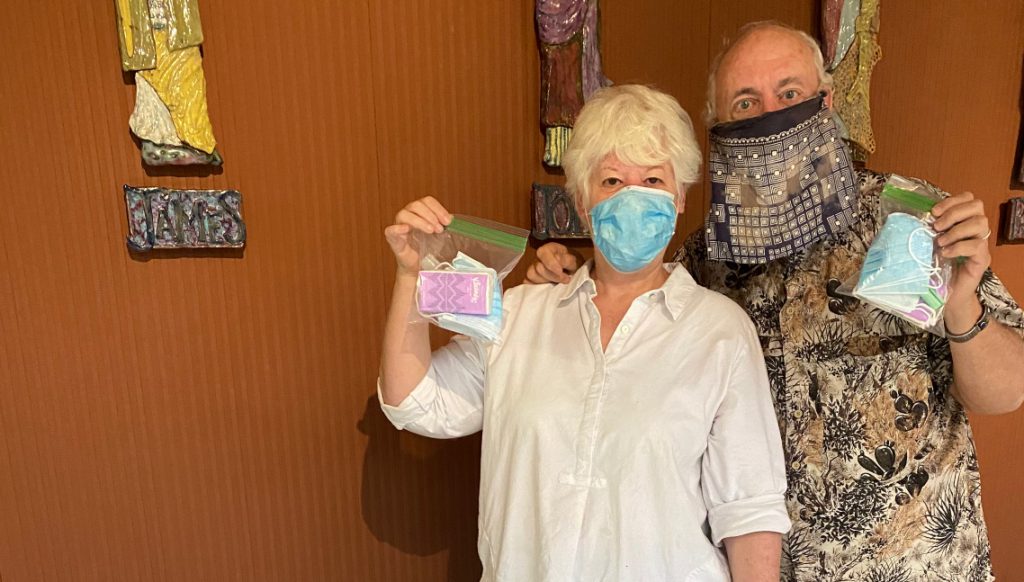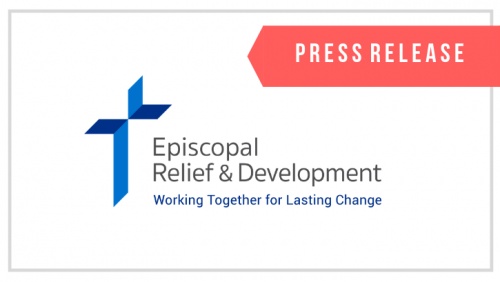Episcopal Relief & Development Supports Humanitarian Response in Border Communities

 Providing Humanitarian Assistance in Border Communities
Providing Humanitarian Assistance in Border Communities
Web Statement
October 13, 2021
Episcopal Relief & Development is continuing to provide emergency assistance and services to thousands of migrants from Haiti and parts of Latin America seeking asylum in South Texas.
Through the Frontera Collective – San Antonio Respite Center, a collaborative effort of Immigration Ministries of the Episcopal Diocese of West Texas (IM DWTX) and several ecumenical partners, individuals seeking asylum at the US-Mexico border are receiving emergency support as they make their journeys to sponsors across the US. After travelers are released from immigration custody, they are reunited with their families. Church volunteers and center staff supply them with clothing, food, medical care and other assistance. The center offers English, Creole and Spanish interpretation to assist migrants in acclimating to the US, its legal system and transportation options.
With Episcopal Relief & Development support, the Diocese of West Texas is working to strengthen the capacity and services of the respite center. The recent political unrest and earthquake in Haiti has brought thousands of additional migrants to the border. The ongoing COVID-19 pandemic has also complicated the migration processes. Other respite centers in the area were overwhelmed by the increase in needs and began sending people to other locations, such as the San Antonio Respite Center. In order to better serve the community, the center has hired additional interpreters as well as drivers who can communicate with the travelers. Episcopal Relief & Development support is also providing emergency shelter and supplies such as paper products, trash bags, clothing, diapers, toiletries and hygiene products.
“The diocese’s immigration ministries’ ability to pivot in times of heightened need and uncertainty is incredible to witness,” says Tamara Plummer, Program Officer, US Disaster Program, Episcopal Relief Relief & Development. “Their pastoral presence through tangible support is a model on how to address future humanitarian crises.”
Learn more about Episcopal Relief & Development programs to respond to disasters, both natural and human-made, in the United States.
For 80 years, Episcopal Relief & Development has been working together with supporters and partners for lasting change around the world. Each year the organization facilitates healthier, more fulfilling lives for more than 3 million people struggling with hunger, poverty, disaster and disease. Inspired by Jesus’ words in Matthew 25, Episcopal Relief & Development leverages the expertise and resources of Anglican and other partners to deliver measurable and sustainable change in three signature program areas: Women, Children and Climate.
Photo courtesy of the Episcopal Diocese of West Texas

 Episcopal Relief & Development Supports Episcopal Diocese of West Texas’ Humanitarian Response in Border Communities
Episcopal Relief & Development Supports Episcopal Diocese of West Texas’ Humanitarian Response in Border Communities
Press Release
May 4, 2021
Episcopal Relief & Development is supporting the Episcopal Diocese of West Texas as it provides COVID-safe humanitarian assistance, such as transportation, food and medical care, to people seeking asylum in south Texas.
“It is inspirational to see the ways that partners like the Diocese of West Texas are addressing this complex humanitarian crisis by building coalitions of support from volunteer translators to governmental and non-governmental agencies,” said Tamara Plummer, Program Officer, US Disaster Program at Episcopal Relief & Development. “By utilizing strong safety protocols, the migration ministry is able to continue and our baptismal covenant is put into practice.”
The Immigration Ministries of the Diocese of West Texas (IM DWTX) works with individuals and families seeking asylum at the US border. As part of the Interfaith Welcome Coalition in San Antonio, diocesan volunteers and staff greet travelers and provide transportation to assist them on the journey to their sponsor. Using the Episcopal Asset Map, a tool created by The Episcopal Church and Episcopal Relief & Development, Flor Saldivar, Coordinator for Immigration and Refugee Ministries for IM DWTX, is coordinating transportation routes by identifying which congregations would be able to provide assistance.
In addition to transportation, the diocese is providing translation services, medical care, food, hygiene items and baby and maternity supplies to individuals and families in need. IM DWTX and other local organizations are collaborating with local and federal governments to make the COVID-19 vaccine readily available to migrants who choose to take it. Volunteers and staff follow strict COVID-19 prevention guidelines such as wearing masks and limiting the number of unrelated people who can ride together.
“The more information congregations share on the Episcopal Asset Map about their gifts, the easier it is for disaster response coordinators to mobilize resources to respond to human need and the work being done at the border is a perfect example,” continued Plummer.
Please consider a donation to Episcopal Relief & Development’s US Disaster Response Fund to support the organization’s continued assistance to vulnerable communities impacted by disasters, both natural and human-made.
For 80 years, Episcopal Relief & Development has been working together with supporters and partners for lasting change around the world. Each year the organization facilitates healthier, more fulfilling lives for more than 3 million people struggling with hunger, poverty, disaster and disease. Inspired by Jesus’ words in Matthew 25, Episcopal Relief & Development leverages the expertise and resources of Anglican and other partners to deliver measurable and sustainable change in three signature program areas: Women, Children and Climate.
Photo Courtesy of the Episcopal Diocese of West Texas


